A great number of consumers favor gelatin capsules or vegetarian capsules that encapsulate drugs or dietary supplement as their preferred method for taking medications and nutritional supplements. This preference exists according to some benefits that capsules offer over other dosage forms such as pills and tablets.
Primarily, the tasteless and odorless nature makes capsules considerably easier to swallow, masking any unpleasant flavor associated with active pharmaceutical ingredients (API). Furthermore, capsules are designed to dissolve rapidly in intestines, facilitating quicker absorption into humans’ bloodstream. From a manufacturing perspective, capsule filling production is frequently more streamlined and cost-effective than the complex tablet compression required for pills.

hard capsule shells encapsulating drug powder
When sourcing empty capsules, a critical decision lies in selecting the appropriate capsule shell material: gelatin capsules VS vegetarian capsules. The market offers a division between vegetarian capsule shells—such as shells made from HPMC (hydroxypropyl methylcellulose) and Pullulan derived from fermented tapioca—and traditionally animal-sourced gelatin capsule shells. While consumers’ dietary or cultural requirements may guide this choice, understanding both vegetable capsules and gelatin capsules enables pharmaceutical manufacturers to make a proper selection, balancing factors like dissolution rates, oxygen barrier properties, stability, and consumer preferences.
Consumers sometimes ask: what are gelatin capsules made of? Gelatin is a unique biopolymer, most commonly sourced from bones, skin, and connective tissues of animals. Through a complex manufacturing process, these raw materials are transformed into the familiar brittle, translucent solid almost tasteless and odorless. The fundamental transformation occurs through the partial hydrolysis of collagen, a primary structural protein found abundantly in animals. This process breaks down large collagen molecules into a manageable mixture of smaller peptides and proteins, resulting in the substance we know as gelatin.
Common sources for gelatin production include cattle (beef), pigs (pork), and poultry (chicken), with the choice of raw material influencing final products’ characteristics. For instance, gelatin derived from animal bones tends to form a tough and hazy film, structurally strong but relatively brittle. In contrast, gelatin obtained from pork or other animal skins yields a much clearer material with better plasticity and flexibility.
These distinct properties dictate applications for each gelatin type. Consequently, pharmaceutical companies often utilize specific blends of bone and skin gelatin to manufacture two-piece hard capsules used for medications. Bone-derived gelatin provides the necessary structural integrity, while skin-based gelatin ensures gelatin capsules remain pliable and clear, demonstrating how the origin of raw materials directly correlates with functional properties of the final gelatin capsule shells.
|
Benefits of Gelatin |
|
|
Exists as a source of protein |
✔ |
|
Facilitates the digestive system |
✔ |
|
Provides amino acid to keep joint health |
✔ |
|
Offers an calming effect on nervous system |
✔ |
|
Enhance sleep quality and mood |
✔ |
|
Improves cognitive functions |
✔ |
For generations, gelatin has served a dual purpose in the health industry, acting both as a beneficial substance and as the primary material for making gelatin capsules encapsulating medications and supplements. The long-standing dominance of gelatin in capsule manufacturing is no coincidence; it is intrinsically linked to the inherent health advantages that gelatin offers when ingested.
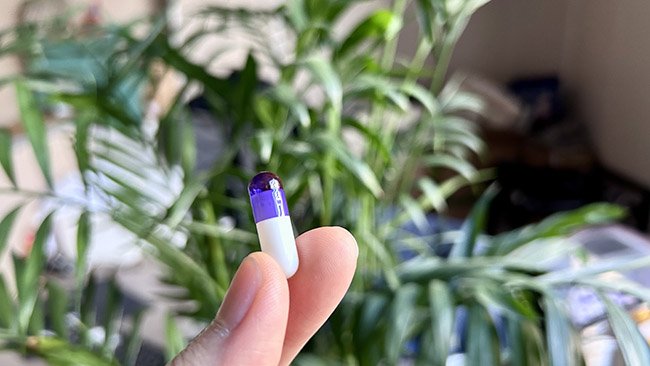
a hard gelatin capsule containing a white capsule body and a purple capsule cap
Beyond simply acting as a protective capsule shell, gelatin itself is a source of protein that provides a range of therapeutic benefits. Gelatin is well known for its positive impact on the digestive system, where it helps soothe the gut lining and aid in digestion.
Furthermore, gelatin is a fundamental building block for joint health, providing the essential amino acids to maintain cartilage integrity. This can lead to strengthened joints, a reduction in inflammation, and a noticeable alleviation of joint pain.
Benefits extend further, with research suggesting that the amino acid profile of gelatin can have a calming effect on the nervous system, thereby promoting improved sleep quality and potentially elevating mood. Some scientific studies also reflect a relation between gelatin consumption and enhanced cognitive functions. This powerful combination of a proven, easy-to-digest delivery system and its own intrinsic nutritional value that solidifies gelatin capsules as the preferred choice for a majority of medication and supplement manufacturers worldwide when formulating new products.
With advantages mentioned above, gelatin has been used in pharmaceuticals for many years, offering a versatile and widely accepted capsule solution. Commercially available gelatin capsules include two types: hard gelatin capsules and soft gelatin capsules.
Hard gel capsules consist of a two-piece, pre-formed shells, celebrated for their versatility in size, color, and flavor to aid in product branding and patient compliance, and ideal for encapsulating solid formulations like powders, granules, or nutraceutical blends, allowing for rapid disintegration and high bioavailability. However, the susceptibility of hard gelatin to moisture is a critical limitation, making it unsuitable for encapsulating liquids or slurries, as water infiltrates and destabilizes hard gelatin shells.
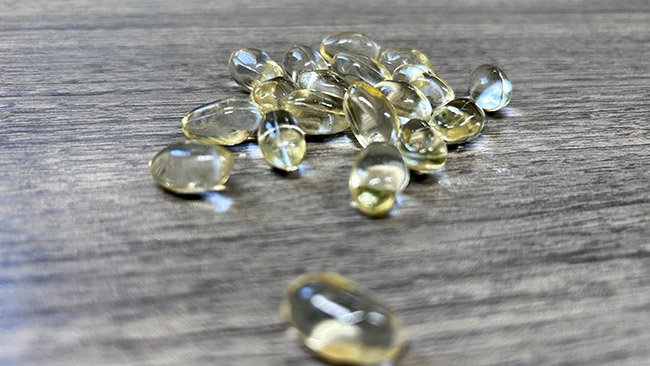
soft gel capsules (also known as “softgels”)
Conversely, soft gelatin capsules are manufactured as a single, hermetically sealed unit, uniquely suited for encapsulating liquids, oils, suspensions, and pastes. The one-piece construction of a soft gelatin shell acts as a barrier protecting contents from oxidation and preventing liquid leakage. The soft gelatine shell itself is plasticized with additives like glycerin, making it impervious to aqueous contents within. For highly hydrophilic or incompatible formulations, polymer-based (HPMC) capsules give a modern alternative.
The choice between hard and soft gelatin should balance the nature of drug substance against functional benefits and protective qualities of capsule shells.
The gelatin production contains several stages.
The initial pretreatment stage prepares raw collagen sources, such as bovine hide or porcine skin, for optimal conversion, involving a rigorous, multi-step cleansing process.
◌ First, materials are thoroughly washed with a dilute acid solution, essential for demineralization, dissolving and removing calcium salts and other inorganic impurities.
◌ Next, tissues are treated with hot or boiling water. This hydrothermal treatment serves to cleanse materials by extracting and removing soluble fats, oils, and other non-collagenous components. This purification is fundamental as it ensures the starting material is clean and primed for subsequent hydrolysis stages that release pure gelatin.
The extraction of collagen is an essential step in gelatin production. This crucial process, often called "hydrolysis", solubilizes the tough, native collagen from animal raw materials like hide splits or bones.
The method is carefully chosen based on raw material nature: an acid process is typically used for porcine skins, producing Type A gelatin with a higher bloom strength, while an alkaline limeing process is applied to bovine hides and bones, resulting in Type B gelatin.
This extraction is not a single event but a meticulously controlled series of steps involving temperature, pH, and time to break down the collagen's triple-helix structure into a soluble form. This soluble liquid will undergo purification, filtration, and concentration to begin its journey into finished gelatin product.
The refining stage is the decisive phase where purified gelatin liquor is transformed into a standardized commercial product. This process involves several key steps.
◌ First, the solution undergoes precise filtration to achieve optical clarity by removing any remaining microscopic impurities.
◌ Then the solution enters evaporation where it is concentrated under controlled vacuum conditions to increase gel strength.
◌ Next, the resulting concentrated gel is then dried in a sterile environment to reduce moisture to a precise level.
◌ Finally, the brittle gel sheets are ground and sifted into specific particle sizes—from coarse granules to fine powders—to meet diverse application requirements.
The shift towards vegetarian capsule is driven by a combination of ethical, religious, cultural, and practical health considerations.
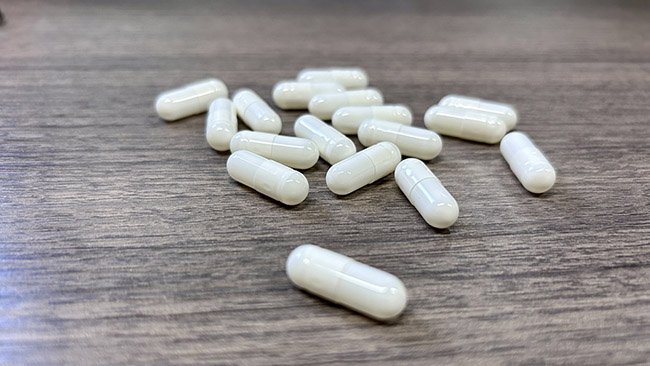
plant-based vegetarian capsules
Firstly, for observant individuals, traditional animal gelatin capsules, often derived from pork, present a conflict with dietary laws. Jewish kosher and Islamic halal practices strictly forbid pork consumption, and even hard gelatin from certified cattle can be problematic. Vegetable capsules provide a universally acceptable, plant-based capsule alternative that aligns with religous practices.
In terms of dietary adherence, the vegan and vegetarian movement globally seeks to avoid all animal-derived products. For vegans and vegetarians, capsules made from bovine or porcine gelatin are unacceptable. While fish-sourced gelatin is an alternative, it is not suitable for vegetarians and can trigger allergies. Vegetarian capsules, typically produced from HPMC sourced from pine or cottonseed pulp, offer an inclusive option.
From a capsule performance standpoint, vegetarian capsules offer distinct advantages. Vegetable capsules are naturally low in moisture and less prone to cross-linking, a chemical reaction that impedes drug dissolution in the stomach. Plant-based/ vegan capsules ensure more reliable and consistent absorption of active pharmaceutical ingredients, ideal for moisture-sensitive fills and are free from allergens and preservatives associated with animal-based gelatin, making veggie capsules a preferred choice for health-conscious consumers.
The market for vegetarian capsules is primarily dominated by two types catering to vegan and vegetarian preferences. The growing popularity of both HPMC and Pullulan capsules is driven by multiple factors that include climbing need for plant-based and non-GMO products, and their superior technical performance for protecting sensitive formulations.
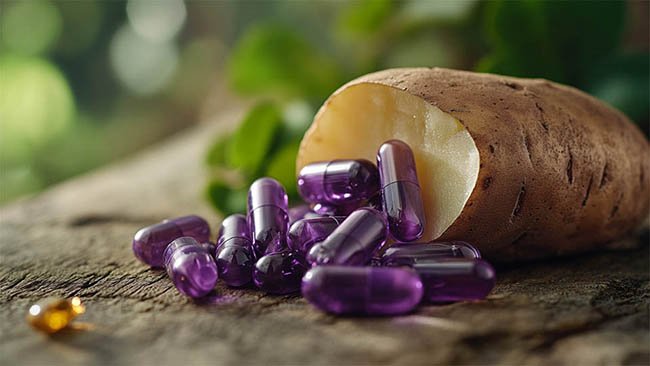
What are vegetarian capsules made of?
The first is HPMC (Hydroxypropyl Methylcellulose), a polymer derived from cellulose, a natural component of wood pulp and cotton.
Derived from natural plant fiber, cellulose serves as the source material for HPMC veggie capsules, offering a safe alternative to both animal and fish gel capsules. As a plant-based polymer, cellulose is inherently vegetarian and vegan-friendly, suitable for a wide range of dietary and cultural needs. Beyond its ethical advantages, cellulose is chemically inert, non-toxic, and poses no known health risks.
Capsules made from HPMC provide excellent functional benefits, including low moisture content for enhanced stability and a good barrier against oxygen, which helps protect sensitive fill ingredients from degradation. This combination of natural origin, safety, and performance makes cellulose-derived HPMC vegetarian capsules a reliable choice.
The second is Pullulan, a natural polysaccharide derived by fermenting tapioca starch.
Tapioca starch, sourced from the cassava plant, is an excellent, natural raw material for producing Pullulan capsules. Unlike traditional gelatin derived from animal or fish, these plant-based vegetarian capsules comply with various religious and dietary restrictions. These vegetable capsules are completely non-toxic with no known health risks, safe for long-term consumption.
Based on this material, Pullulan capsules offer an excellent oxygen barrier for superior product stability. These vegan capsules are also naturally transparent, odorless, and dissolve quickly for optimal release.
Both medication and supplement capsules can be produced by automatic capsule filling machines. By operating an auto capsule filling machine filler, pharmaceutical and nutraceutical manufacturers can fill empty gelatin or vegan capsule shells with powdered or granular active ingredients with the production output reaching over 150,000 capsules per hour.
Without the need of manual intervention, an automatic capsule filling machine is capable of continuously performing capsule making processes including capsule loading, capsule dispensing, capsule separating, capsule filling, unqualified capsule rejection, capsule locking, and finished capsule output.
|
First, empty capsules are loaded into a feed hopper of an automatic encapsulation machine. |
|
↓ |
|
Secondly, through capsule dispensing tubes, empty capsules are dispensed into upper and lower molds. |
|
↓ |
|
Thirdly, through the separation of upper and lower capsule molds, capsules are then separated into their cap and body halves. |
|
↓ |
|
Capsule bodies are precisely positioned under a powder dosing system, where capsule bodies are filled with the drug formulation by using mechanisms like filling rods for capsule filling accuracy. |
|
↓ |
|
Next, capsule caps and filled capsule bodies are locked together. |
|
↓ |
|
At last, locked capsules are ejected from the automatic capsule filling machine filler. |
|
↓ |
|
Furthermore, with the help of capsule polishing machines, finished capsules are often polished to remove any residual powder, resulting in clean capsules ready for packaging. |
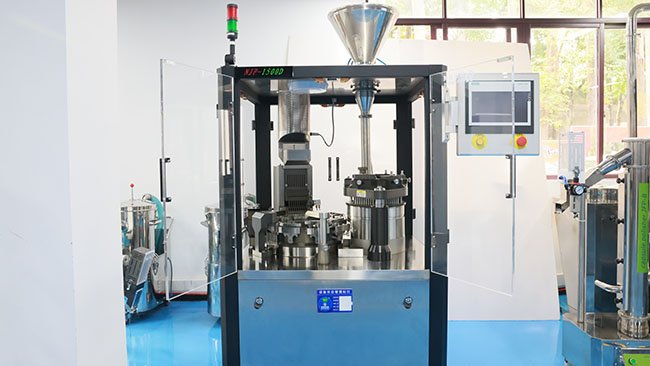
NJP 1500D pharmaceutical automatic capsule filling machine
Top suppliers of automatic capsule filling machines like Syntegon, IMA, and Rich Packing provide automatic encapsulation machines that feature:
● Automation & Speed: Automated capsule filling, capsule opening and sealing, and finished capsule ejection with mass production capability (e.g., 200,000+ capsules/hour).
● Precision & Compliance: Advanced dosing systems for accurate capsule filling and built-in mechanisms for compliance with cGMP and FDA regulations (e.g., NJP 1500D automatic capsule filling machine)
● Versatility & Flexibility: Ability to handle multiple capsule sizes from 000 to 5 and various ingredient types with quick tooling changeover thanks to modular design of molds.
● Quality Control Integration: Automatic capsule machines can be equipped with inline check-weighers, metal detectors, and capsule polishing systems.
● Robust Service Support: Extensive operator training, equipment installation, on-site machine debugging, and global spare parts replacement services.
When it comes to vegetarian capsules vs gelatin capsules, some features are worth noting:
|
Feature |
Gel Capsules |
Vegetarian Capsules |
|
Source |
Derived from animals' by-products (usually bovine or porcine). |
Derived from plant cellulose (e.g., HPMC from pine or cotton) or fermented tapioca starch (Pullulan). |
|
Benefits |
Widely Used & Cost-Effective: The traditional standard, generally less expensive to produce. |
Suitable for All Diets: Vegetarian, vegan, Halal and Kosher compliant. |
|
Proven Technology: Excellent and reliable solubility profile in the stomach. |
Low Moisture: More stable, ideal for moisture-sensitive fills. |
|
|
Strong & Versatile: Known for their durable, leak-proof seal and wide range of sizes. |
Reduced Cross-Linking Risk: More stable shelf life, less prone to solubility issues in high heat or humidity. |
|
|
Drawbacks |
Not for All Diets: Unsuitable for vegetarians, vegans, and certain religious groups. |
Generally More Expensive: Higher costs of raw material and production. |
|
Moisture-Sensitive: Can become brittle when dry or soft when humid. |
Different Solubility Profile: May dissolve slightly slower than gelatin in gastric fluid. |
|
|
Cross-Linking Risk: In rare cases can become insoluble if stored improperly for long periods. |
Softer Shell: Can be less mechanically robust than gelatin, requiring careful handling. |
In terms of gelatin capsule VS vegetarian capsule, gelatin is a proven, economical, and robust choice if dietary restrictions are not a concern. Vegetarian capsules are the superior option for catering to global dietary preferences, ensuring maximum market access, and providing enhanced stability for sensitive ingredients.
Before procuring capsule shells for filling capsules by operating automatic capsule filling machines, capsule manufacturers need to understand target markets since both vegetarian capsules and gelatin capsules have their own advantages and disadvantages.